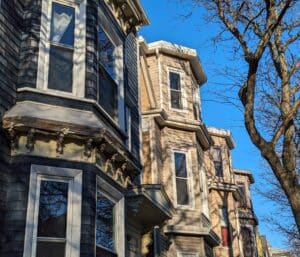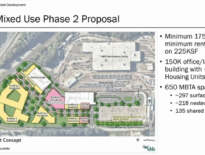As home prices continue to rise, support for “missing-middle” housing development is growing according to a recent Zillow survey.
Starting in 2022, about 77 percent of renters nation-wide reported their support for allowing accessory dwelling units, duplexes and/or triplexes in residential neighborhoods. When surveyed again in 2023, 82 percent reported the same support and 78 percent of survey respondents voiced support for at least one type of missing-middle housing option, and support was higher among renters (91 percent).
For respondents located in the Boston area, 90 percent supported ADUs while 84 percent supported duplexes and triplexes in their neighborhoods. Eighty percent of respondents in the area believed that more multifamily housing options would help them care for aging family members and 71 percent said that multifamily housing would have a positive effect on neighborhood amenities.
The survey’s Boston respondents are also in favor of allowing homeowners the freedom to convert their homes to add housing units: 81 percent supported the ability to convert homes, an increase from 63 percent when Zillow conducted a similar survey in 2019.
Jesse Kanson-Benanav, executive director of Abundant Housing MA, isn’t surprised that support continues to grow for missing-middle housing.
“People feel the stress and they’re open to strategies that we’ve seen in other regions around the country in terms of reforming zoning to allow more apartments or homes to be built, and that it does bring down costs,” he said. “We’ve seen that from places like Austin and Minneapolis and many other places around the country that have done more reforming of zoning, local permitting, build housing for people all income levels, and it’s bringing the cost of housing down. We haven’t really done that broadly yet in Greater Boston.”
While the support is evident, Kanson-Benanav believes that local control over land use has made it difficult for zoning reforms to be passed and encourage decision-making without regard to the broader impact on the rest of Massachusetts. Kanson-Benanav also noted how the attendees at a zoning board meeting aren’t a total representation of a municipality’s population.
“The town meeting form of government – that’s not Boston proper, of course, but in towns around Massachusetts – the legislative body is created by, in some cases, any registered voter that shows up at the high school gymnasium for four nights, twice a year, and that really limits who has the ability from that community to show up,” he said. “We also have these communities where not a single apartment or affordable home has been built in generations. So the people who are not having access to that community, because that community is so incredibly expensive, they don’t even have the ability to participate because they’re just not living there.”
The Zillow survey polled 12,000 adults across the nation’s 26 most populous metro areas between March and April 2024.







